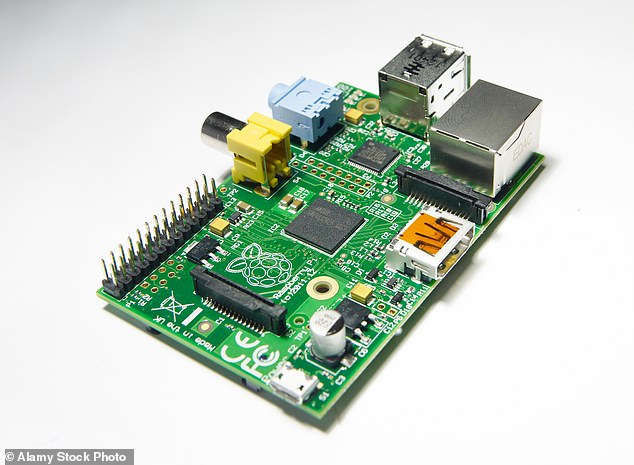Table of Contents
Analysts have predicted that Raspberry Pi will achieve FTSE 250 status in the latest shake-up of London’s markets, less than three months after the computer maker went public.
The Cambridge-based group’s initial public offering in June generated a frenzy of interest among investors, with buyers of all sizes eager to capitalise on Raspberry Pi’s growth potential.
And Raspberry Pi could already face a promotion to London’s mid-cap index in an imminent restructuring, which will be based on closing prices on September 3 and take effect on September 23.
Growth potential: Raspberry Pi makes products used by enthusiasts to build computer servers or retro gaming consoles.
Founded in 2012, Raspberry Pi makes products used by enthusiasts to build computer servers or retro gaming consoles.
The Raspberry Pi IPO was hailed by some as a rare victory for London markets after a prolonged period of struggling to attract new business and suffering defections to foreign stock exchanges and private holdings.
The stock rose again a few days later as retail investors got a chance to back the company.
Raspberry Pi The shares are currently trading at 401p, marking an increase of more than 40 per cent from their IPO price of 280p.
Panmure Liberum analysts Joachim Klement and Susana Cruz believe the firm, which now has a market capitalisation of £782.2m, will be promoted to the FTSE 250 next month.
Market capitalisation is forecast at £397m Puretech Health will be relegated out of the index, but the pair noted that “no stocks in the FTSE Small Cap currently qualify for automatic promotion to the FTSE 250.”
Susannah Streeter, director of money and markets at Hargreaves Lansdown, said: ‘The company’s initial aim was to provide IT that was affordable so that young people could own and explore it with confidence, giving them the opportunity to discover computing.
‘Customers now use their single-board computers in a variety of applications across a wide range of markets, and the computers are more efficient to manufacture than traditional desktop PCs and embedded PCs, consuming 90 percent less electricity.
‘Raspberry Pi now makes computing modules for industrial customers involved in the ‘Internet of Things’ sector, creating devices with sensors, processing power, software and other technologies that connect and exchange data over the Internet.
‘There is now a lot of excitement about the potential of the technology as so-called ‘edge computing’ takes off, when data is processed closer to where it is created, making things work faster.
‘However, with so many pretenders to its tiny throne, Raspberry Pi will have to work hard to stay near the front of the race.’
Raspberry Pi will issue its first performance report on September 24, when the group publishes its first-half results.
DIY INVESTMENT PLATFORMS

AJ Bell

AJ Bell
Easy investment and ready-to-use portfolios

Hargreaves Lansdown

Hargreaves Lansdown
Free investment ideas and fund trading

interactive investor

interactive investor
Flat rate investing from £4.99 per month

Saxo

Saxo
Get £200 back in trading commissions

Trade 212

Trade 212
Free treatment and no commissions per account
Affiliate links: If you purchase a product This is Money may earn a commission. These offers are chosen by our editorial team as we believe they are worth highlighting. This does not affect our editorial independence.

